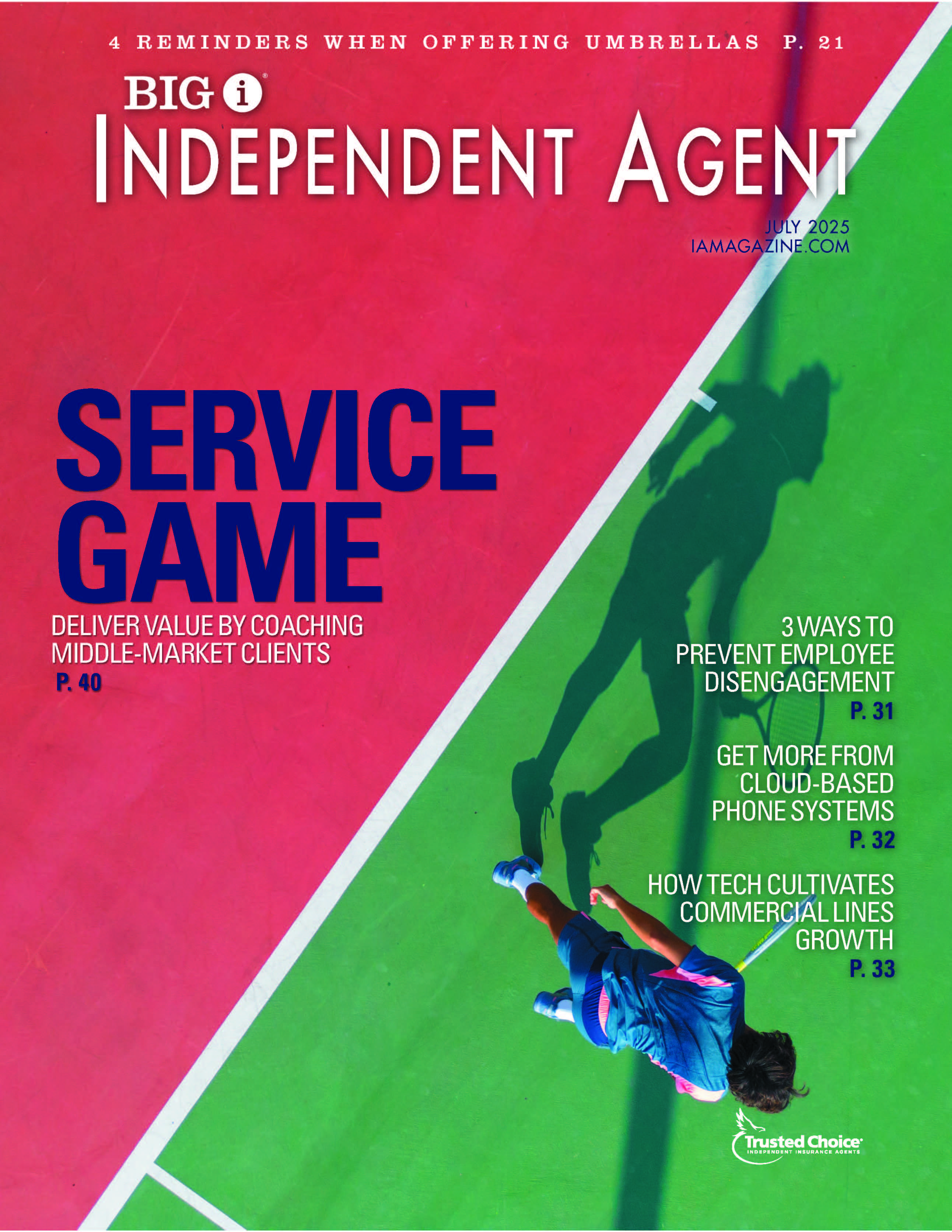How Agents Can Assist Restaurants in a New Era of Growth

By: Olivia Overman
The restaurant and food service industry is expected to continue to grow throughout 2024, with sales forecasted to top $1 trillion for the first time in history, according to the National Restaurant Association’s “2024 State of the Restaurant Industry” report. Additionally, as the nation’s second-largest private sector employer, the industry is on track to add 200,000 jobs, pushing total employment to 15.7 million people, the report says.
While there is excitement about the continued recovery of an industry that suffered tremendously during the coronavirus pandemic, these businesses—the cornerstones of our communities—still have challenges to contend with.
Starting a restaurant and keeping the doors open is complicated, and agents and their clients need to “consider all the options available in the market on a more frequent basis,” says Rachel Kallmyer, industry lead, Travelers. “By helping customers build businesses that are resilient by implementing programs that can reduce risk and help prevent claims, both agents and customers benefit.”
Restaurateurs face difficulties in nearly every aspect of their business, including hiring and retaining staff, an ever-evolving landscape of changing technologies, economic and social inflation, and the recent Department of Labor (DOL) overtime rules changes, as well as meeting the expectations of diners.
“The hard market has impacted the restaurant industry. Economic inflation, rising reinsurance costs, social inflation, the job market and coastal pressures have all played a role in pricing and capacity for the restaurant industry,” says Bill Hughes, vice president of commercial lines, Arbella Insurance Group. “There is a tremendous need and value that the independent agent can provide to restaurant ownership.”
By reviewing any overarching changes restaurateur clients have made to their business, agents can make sure customers have the insurance protection they need. One of the changes that many restaurants have implemented involves adopting more technology.
The restaurant industry was forced to change rapidly during the coronavirus pandemic, and guest expectations changed along with it. For many in the industry, the resultant technology solutions introduced during these years remain in place. From the use of a QR code for menus to contactless payment methods and geofencing—the use of GPS devices or radio frequency identification to track a customer’s location—restaurants are using digital technologies to enhance customer experiences and streamline their operations.
Technological advances continue to offer restaurateurs more opportunities, with 76% of operators saying using technology gives them a competitive edge, according to the National Restaurant Association. Yet, while technology offers immense potential, agents should assist clients with identifying cyber exposures and obtaining cyber liability insurance.
Meanwhile, technology and monitoring devices can also be used to mitigate frequently occurring claims. “Agents have a great opportunity to educate and consult in the implementation of these devices,” Hughes says. “For those restaurants with delivery services, telematics within the vehicle can help monitor driver behaviors.”
As the use of artificial intelligence (AI) evolves within the restaurant industry, agents must also take a leading role in guiding their clients through its safe and proper use. The use of AI for order-taking may help reduce strain on staff, but its use in hiring and staff assessments could lead to employment-related claims.
Further, agents can share their valuable experience on the importance of addressing the “increasing pressure to ensure employees are properly trained, ensuring their safety, as well as that of their patrons,” Hughes says. Almost all restaurants are continuing to struggle to hire staff and “if shorthanded, this puts additional stress and pressure on current staff,” Hughes says. “This situation can be a recipe for workplace injuries when staff are moving too quickly, carrying too much, or not paying as close attention to safety when trying to get the job done. These injuries may have been prevented through training, and can also result in higher workers compensation claim activity and, ultimately, increased premiums.”
As many of the changes that took hold during the coronavirus pandemic remain popular today, agents can play a role in ensuring stringent and formal hiring practices are in place. For example, as more restaurants offer food delivery, “agents should remind their clients about being vigilant in hiring practices for drivers,” Hughes says.
“The quality of the driver and their driving experience should be critical parts of not only the hiring practice, but they should also be regularly followed up on,” Hughes adds. “With each delivery, the driver is representing the restaurant and its reputation.”
Olivia Overman is IA content editor.










